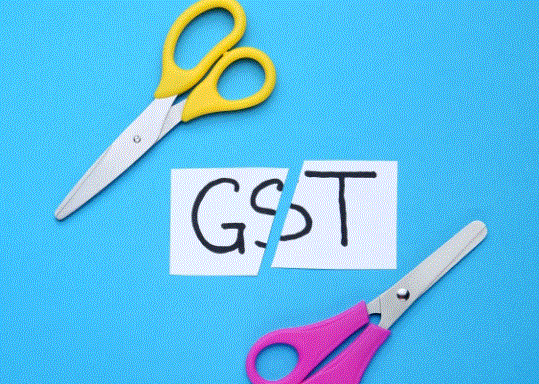Indian Government Cuts GST Rates to Boost Festive Spending

UPDATE: The Indian government has just announced sweeping cuts to Goods and Services Tax (GST) rates, effective immediately, aimed at stimulating consumer spending ahead of the festive season. This major economic move is expected to significantly lower prices on essential goods and services, impacting millions of consumers across the country.
In a bid to boost demand, particularly among middle-income and rural households, the Finance Ministry confirmed that the GST Council has approved substantial reductions across various categories. The reforms, dubbed “GST 2.0,” are set to transform the festive shopping landscape as Diwali approaches in October.
Key Changes Include:
– Household appliances like fans and mixers will now see GST reduced from 18% to 12%.
– Footwear priced under ₹1,000 will be taxed at just 5%, down from 12%.
– Ready-to-eat packaged foods will now carry a GST of 5%.
– Hotel stays under ₹2,500 per night will also attract a 5% GST.
– Digital learning platforms may receive GST exemptions in certain cases.
Experts are optimistic about these changes, indicating they will enhance market sentiment and drive consumption, especially in Tier 2 and Tier 3 cities. With the festive shopping season set to commence, retailers and manufacturers are poised to pass on benefits to consumers through reduced prices and enticing promotions.
The Reserve Bank of India’s latest bulletin emphasizes that these tax revisions could tackle inflation, boost household purchasing power, and aid India’s economic recovery post-pandemic.
For everyday consumers, this means lower costs on essential items, more appealing deals during Diwali sales, and greater affordability when it comes to travel and lifestyle purchases. Small businesses and retailers are also expected to benefit from increased margins and an influx of new customers, with many fast-moving consumer goods companies welcoming these changes in anticipation of a demand surge over the next two quarters.
Nevertheless, some economists express caution, warning that these cuts may lead to a decline in short-term tax revenues. Despite this, government officials remain confident, stating,
“This is a carefully calculated decision aimed at long-term growth, not just short-term relief.”
As the festive season approaches, all eyes will be on the retail landscape as these GST cuts take effect. Consumers and businesses alike are eager to see how these changes will reshape spending habits and economic performance in the coming months. Stay tuned for further developments as this story unfolds.






